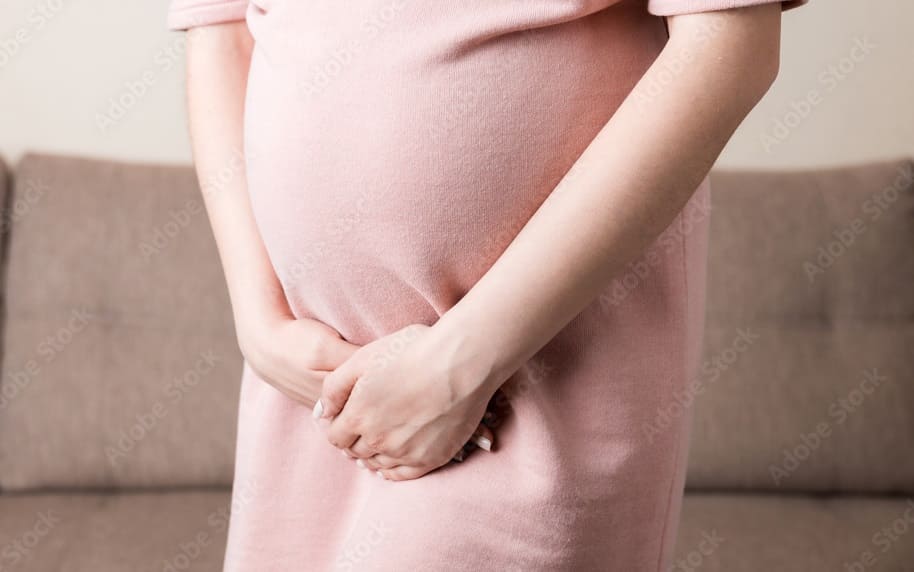Let’s face it—pregnancy comes with a whole new set of rules, cravings, and, yes, bathroom visits. If you’re pregnant and feel like you’re always looking for the nearest washroom, you’re not alone. That tiny growing human puts a lot of pressure—literally—on your bladder. But sometimes, you’re in the middle of a Zoom meeting, on a packed bus, or just too tired to get out of bed for the fifth time at night. So, you hold it. Harmless, right?
Well, not quite. We spoke with maternal health experts to uncover what actually happens when you hold your urine during pregnancy—and it turns out your bladder isn’t as forgiving as you might think.
Why Pregnant Women Pee So Often
First things first—why is this even happening?
According to Dr. Neha Mehta, a leading OB-GYN, “Pregnancy significantly increases blood volume and kidney activity. This leads to more urine production. Add to that the growing uterus pressing on the bladder, and you’ve got the perfect recipe for frequent bathroom trips.”
Here’s what’s at play:
- Increased blood flow to the kidneys means more urine is filtered.
- Hormonal changes, especially higher progesterone levels, relax the bladder muscles, leading to more frequent urges.
- The uterus expands as your baby grows, pushing directly against your bladder.
Hidden Dangers of Holding Urine During Pregnancy
While it may not seem like a big deal in the moment, holding urine regularly during pregnancy can cause a series of problems. Here’s a detailed look:
1. Urinary Tract Infections (UTIs): The Most Common Risk
Pregnant women are naturally more prone to UTIs due to hormonal changes and physical pressure on the urinary tract. Holding urine creates a stagnant environment where bacteria like E. coli can grow and multiply.
“If a UTI develops and goes untreated, it can travel to the kidneys and cause pyelonephritis, which is much more serious and sometimes requires hospitalization,” warns Dr. Mehta.
Symptoms of a UTI include:
- Burning sensation during urination
- Frequent urge to urinate with little output
- Cloudy or foul-smelling urine
- Lower abdominal pain or cramping
If you notice any of these, call your doctor ASAP.
2. Bladder Overstretching and Weakening
Holding in large volumes of urine can stretch the bladder muscles beyond their normal capacity. Over time, this can weaken the bladder and lead to:
- Incomplete emptying (urinary retention)
- Frequent urges without actual need
- A higher risk of urine backflow into the kidneys (reflux)
A stretched bladder doesn’t snap back like a rubber band—it may lose its elasticity, making recovery post-pregnancy harder.
3. Stress Incontinence Later in Pregnancy (and Beyond)
It’s a bit ironic—holding your pee to avoid an accident might actually increase your risk of one. How?
By overstressing the pelvic floor muscles, which are already under pressure due to pregnancy weight and hormone relaxin, you may develop stress incontinence. This causes urine leakage when you:
- Cough
- Laugh
- Sneeze
- Lift heavy objects
“Pelvic floor health is key in pregnancy and postpartum recovery. Holding urine can put strain on already vulnerable muscles,” says physiotherapist Dr. Priya Kalra, who specializes in prenatal care.
4. Kidney Complications: More Than Just Back Pain
In rare but severe cases, holding urine frequently can lead to hydronephrosis, a condition where urine backs up into the kidneys, causing them to swell.
Symptoms include:
- Pain in the sides or back
- Nausea
- Fever
- Visible swelling or bloating
This condition increases the risk of preterm labor and other complications, especially if paired with infection.
5. Increased Discomfort and Abdominal Pressure
Let’s not forget the obvious: a full bladder is uncomfortable, especially when there’s already so much pressure in your pelvic region.
If you’re dealing with:
- Braxton Hicks contractions
- Round ligament pain
- Sciatica
…a full bladder can make it all worse. In some cases, it can even trigger contractions or worsen pelvic girdle pain.
Quick Tips to Protect Your Bladder During Pregnancy
Now that you know the risks, here’s how to keep your bladder (and baby!) happy:
- Don’t delay: Go as soon as you feel the urge, even if it’s the fifth time in an hour.
- Do pelvic floor exercises (Kegels): These strengthen your muscles and help with postpartum recovery too.
- Stay hydrated—but pace yourself: Drink enough water but spread it throughout the day.
- Avoid bladder irritants: Limit caffeine, citrus juices, and spicy foods if they increase urgency.
- Empty fully: Lean slightly forward while peeing to help your bladder empty more completely.
When to Call Your Doctor
Don’t ignore:
- Pain or burning during urination
- Fever or chills
- Lower back pain
- Blood in urine
- Leaking urine without warning
Any of these could signal an infection or something more serious.
Final Thoughts from the Expert
Holding your urine occasionally won’t break you—but making a habit of it during pregnancy? That’s a risk you don’t want to take.
“Your bladder is working overtime just like the rest of your body. Respect it, listen to it, and respond promptly. It’s one of the simplest ways to protect your health and your baby’s,” says Dr. Mehta.
So next time you feel that familiar urge, don’t hold back. Literally.
Have questions about pregnancy health or bladder issues? Leave a comment below or share your story—let’s support each other, one bathroom break at a time.
Also Read:
